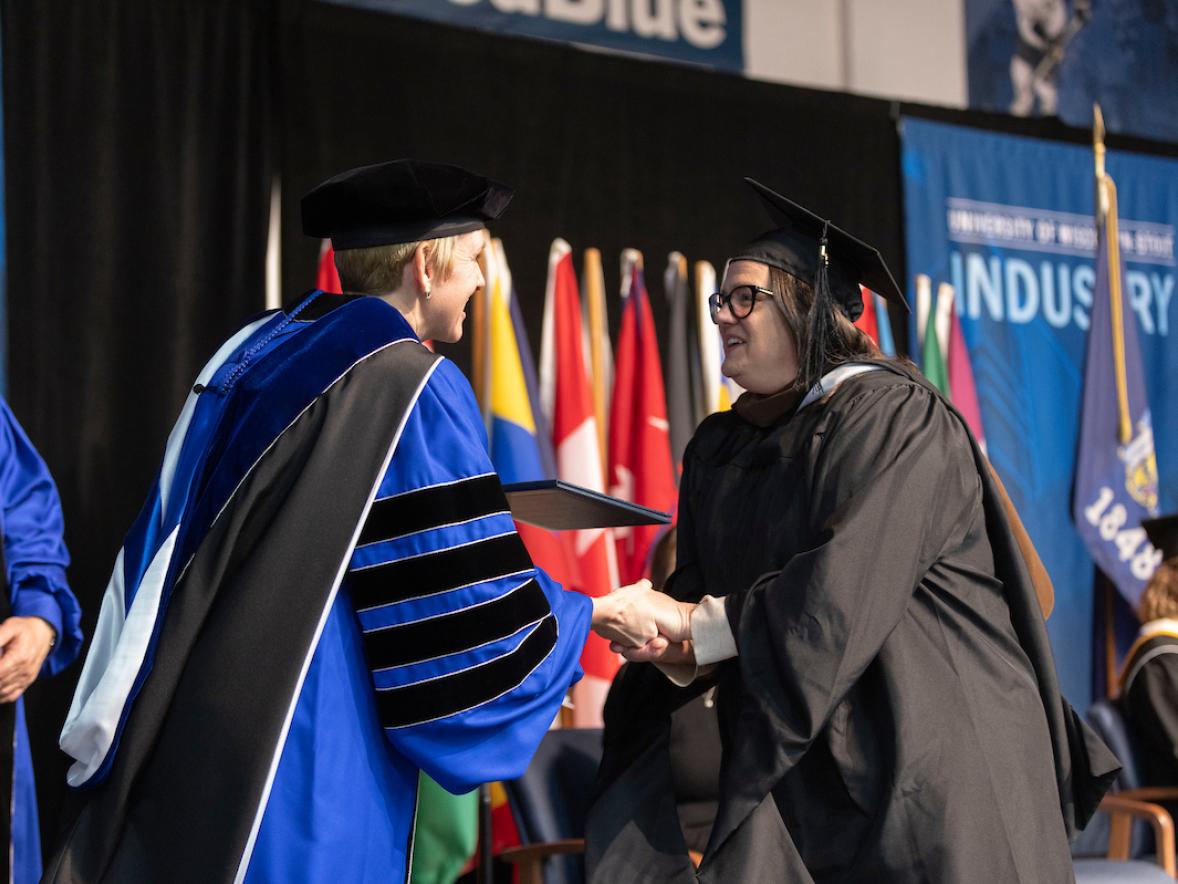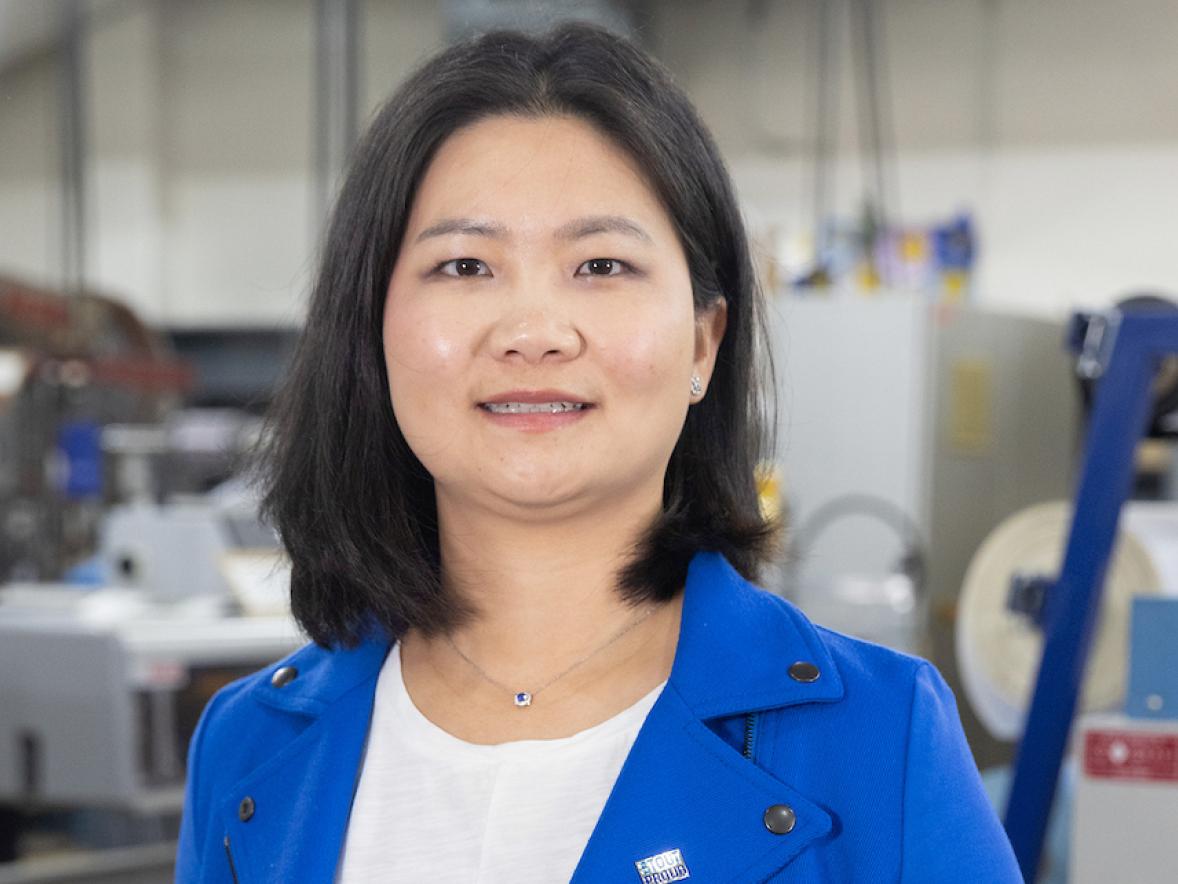Residents of a village in the Andes Mountains of Ecuador are looking forward to having — for the first time — clean water, thanks to the skills and efforts of determined engineering students at UW-Stout.
The students are members of the university’s Engineers Without Borders chapter. They designed a system that captures spring water and chlorinates it for safe consumption. Then, gravity transports it in buried pipes down the mountain to a pair of 5,000-liter holding tanks, where villagers will access it.
Three members of the chapter, Jeremiah Hubbard, Jack Lonn and Elana Showalter, visited the village, Naranjal, for 10 days last August and September to help the 100 residents begin installing the system. The villagers have continued to make progress and are close to completing Phase 1, a section highest on the mountain.
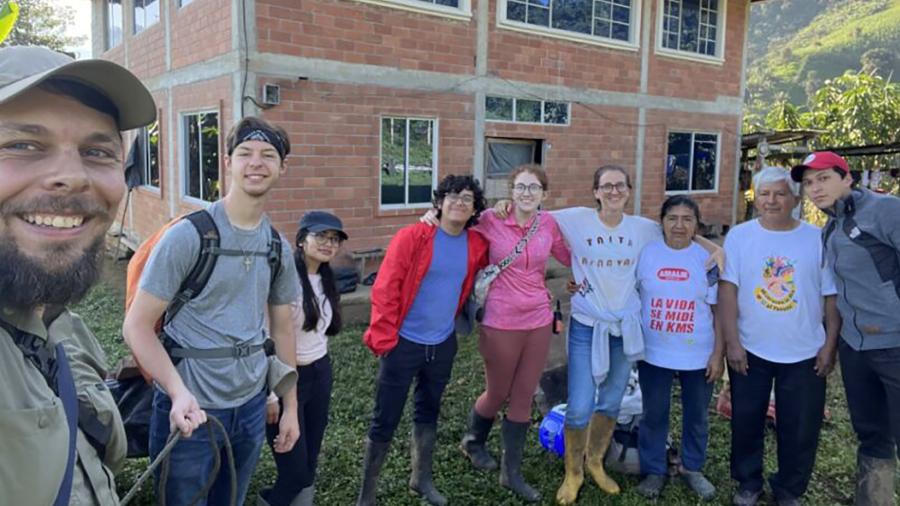
“We learned a lot about the process of engineering,” said Showalter, of Northfield, Minn., EWB chapter vice president who is majoring in mechanical engineering. “This isn’t guesswork. We know it will work because of our calculations.”
The system will improve residents’ lives by eliminating fears of E.coli and other water-borne illnesses. Currently, they use a system that isn’t chlorinated and requires them to boil water or travel to find clean spring water.
The new system also will capture and hold more water, be more accessible to residents who live over about a two-mile area, and with larger holding tanks store water even during the dry season.
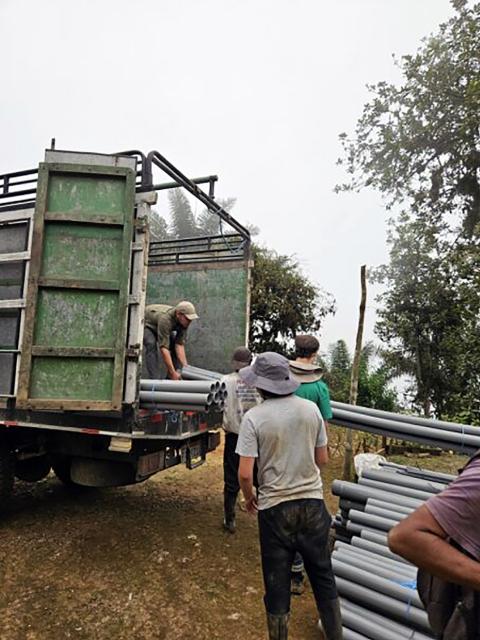
“The intention is that once we finish the project, we hope we’ll never have to touch it again. They can operate it completely on their own,” said Hubbard, of Hammond, the chapter president and also a mechanical engineering major. He is minoring in global perspectives in engineering.
About six-tenths of a mile of pipe was installed during the visit, with residents working independently on another three-tenths. Excavating equipment was brought in to dig trenches for the pipes.
The students plan to return to Naranjal in 2024 to begin Phase 2, farther down the mountain. Phase 2 would cover about another mile and bring holding tanks to more residents.
The approximately $17,000 project was paid for through fundraisers, EWB chapter funds and grants. Naranjal residents are covering about 5% of the cost. Students paid their own travel expenses, about $700 each. They are fundraising for their return trip. Donations can be made at the UW-Stout EWB student chapter website.
The students worked with EWB professional engineer advisers and Rachel Conrad, representative of an Ecuador NGO — nonprofit government organization. Conrad also acted as a translator, although Showalter also speaks Spanish and is pursuing a minor in it.
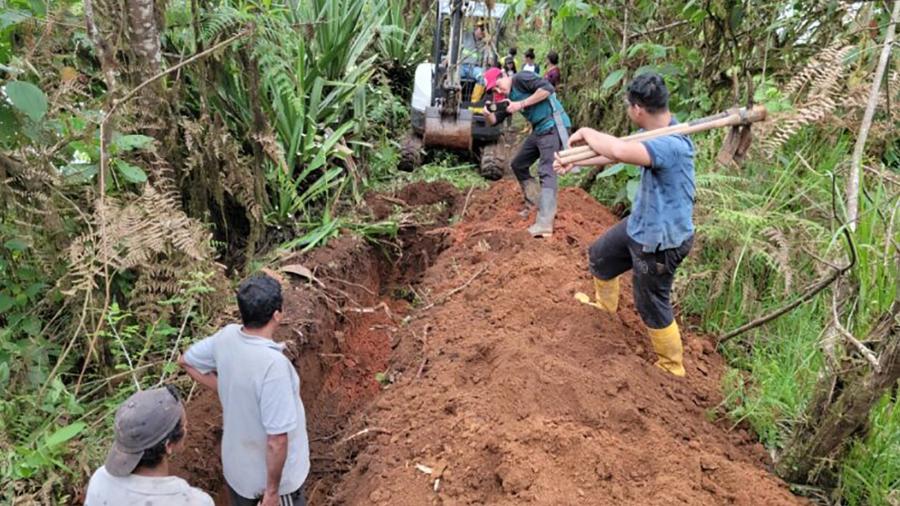
In 2024, Engineers Without Borders USA is working on 506 projects in 39 countries involving more than 14,000 volunteers.
Assistant Professor Vince Wheeler, who provided project support, was impressed by the students’ efforts. “It takes determination and a deep sense of purpose to dedicate this much of their time and expertise to help people in need,” he said.
UW-Stout has four undergraduate programs and one in Graduate Studies in engineering, part of the Robert F. Cervenka School of Engineering, and an engineering technology degree.
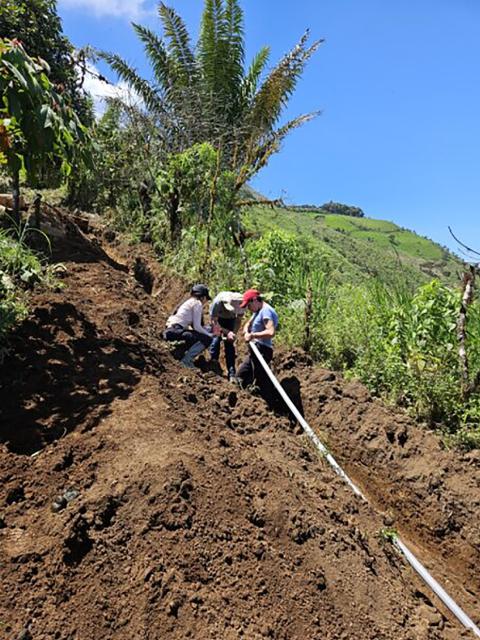
‘Huge motivation to go back’
Prior to the trip, students met about 12 villagers during several virtual meetings. “We talked with community members, explained our plan and asked them if they had questions,” said Lonn, of Eden Prairie, Minn., a computer and electrical engineering major.
“The villagers were all in to help,” said Lonn, previous EWB chapter president.
Some digging had been done before students arrived, but PVC pipe, a Bobcat excavator and other materials had to be trucked up the mountain before the full project could begin.
Designing the system, which involved numerous steps and approvals, including from EWB, took about two years during the students’ spare time. “We had to submit pages of math to show this should be able to go where we want it to go,” Hubbard said.
They were warmly received in Naranjal, with residents amazed they would come all the way from America to help them. “We were honored that they would invite us into their community,” Showalter said.
Students housed and ate at residents’ homes, and on their last night the entire village threw them a party with food, music and dancing.
“We have this huge motivation to go back and help them,” Showalter said. “It’s that responsibility we all knew we had to the community but especially after meeting them and seeing the people we’re helping.”
The project began in 2020 under chapter president Daniel Horist but was delayed during COVID. In the meantime, students remained in touch with Naranjal residents and provided plans for greenhouses needed to grow certain types of crops in a tropical climate. They saw the finished greenhouses during their visit.
“This team, and those in EWB before them, have persevered through serious setbacks since the project started,” Wheeler said.
The project is the first one successfully implemented by UW-Stout’s EWB chapter.
###





